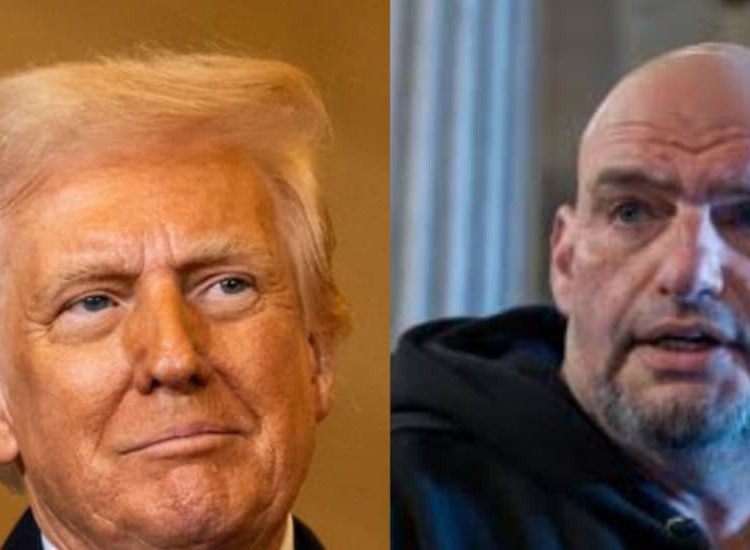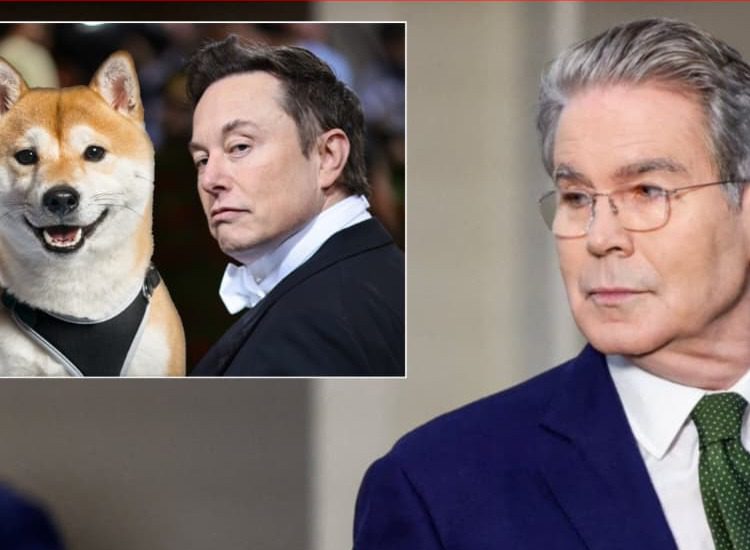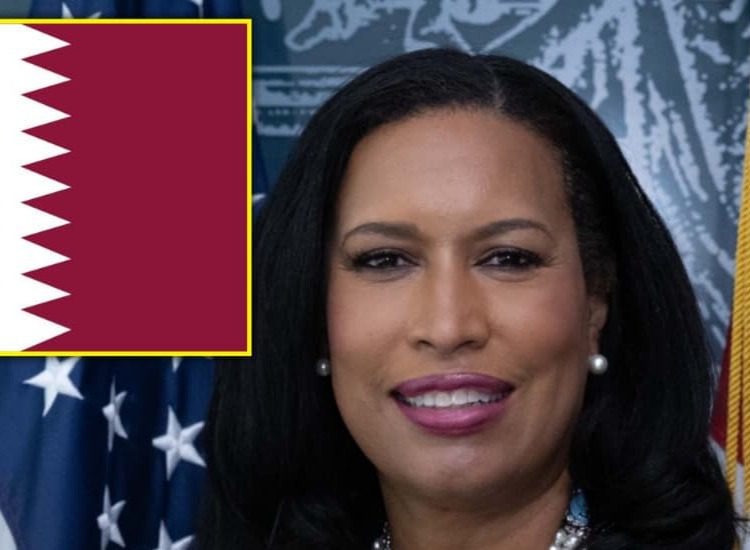Democratic Senator John Fetterman Applauds Trump’s Historic Move to Cut Weight-Loss Drug Prices from $1,000 to $149 — A Bipartisan Win That Could Save Millions of Lives
It’s not often that Washington agrees on anything these days — but this week, even some of President Trump’s sharpest critics had to acknowledge one of his biggest policy wins yet. In a rare show of bipartisan praise, Democratic Senator John Fetterman of Pennsylvania publicly commended President Trump’s November 6, 2025 deal with pharmaceutical giants Eli Lilly and Novo Nordisk to slash the price of popular GLP-1 weight-loss and diabetes drugs like Mounjaro and Wegovy from over $1,000 to as low as $149 per month for Medicare and Medicaid patients. The move could open access to millions of Americans struggling with obesity and heart disease — and it’s being hailed as one of the most consequential healthcare reforms in years.
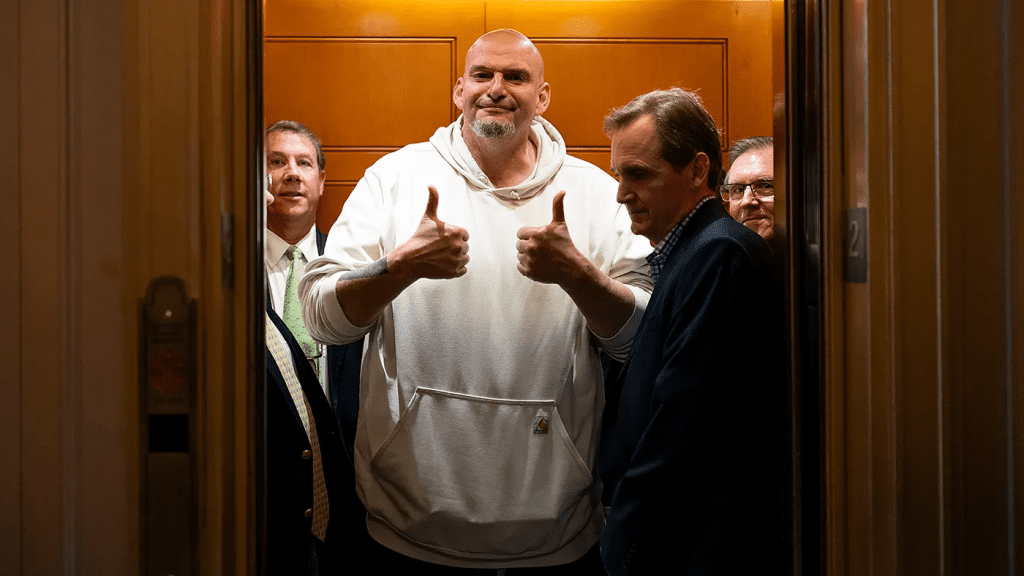
Fetterman, a stroke survivor who has spoken openly about his own use of Mounjaro to maintain heart health, didn’t hold back in his statement. “As a stroke survivor, I started Mounjaro for my heart health, but it helps protect my overall health,” he said. “Making these critical drugs more affordable will save lives.” Coming from a Democrat who rarely aligns with Trump, the praise underscored how significant this breakthrough truly is.
The agreement marks the culmination of months of negotiations between the Trump administration and top drugmakers Eli Lilly and Novo Nordisk. These companies dominate the fast-growing GLP-1 market — a class of drugs initially developed to treat diabetes but now prescribed for weight management after clinical trials showed they could reduce body weight by up to 15% in some patients. Under Trump’s new plan, Americans enrolled in federal healthcare programs will see their monthly costs plummet from around $1,000 to just $149, with private insurers expected to follow suit.
For millions of Americans living paycheck to paycheck, that price difference could mean the difference between treatment and hopelessness. According to CDC data, over 42% of U.S. adults are classified as obese, and nearly 10 million currently qualify for medical intervention using GLP-1 medications. Many have long viewed the drugs as out of reach — until now.
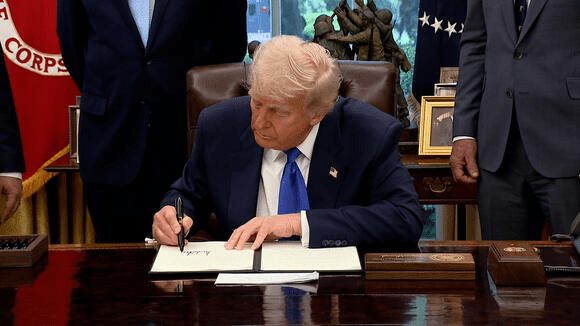
Trump’s announcement fulfills a key campaign promise: to lower prescription drug prices through direct negotiation and manufacturing reform. It also contrasts sharply with Democratic proposals that stalled in Congress under the Biden administration, which aimed to cap out-of-pocket insulin costs but struggled to tackle high pricing for new weight-loss treatments. “This is what leadership looks like,” a senior White House adviser said following the announcement. “President Trump promised Americans relief from Big Pharma price gouging — and he delivered.”
The deal’s financial impact could be enormous. A 2024 JAMA analysis estimated that reducing GLP-1 drug prices to below $200 could save the U.S. healthcare system nearly $30 billion annually by preventing obesity-related complications like heart disease, stroke, and Type 2 diabetes. These conditions cost the country more than $170 billion each year in direct medical expenses. By expanding access, Trump’s policy not only helps individuals but also reduces strain on public health resources.
Medical experts have echoed cautious optimism. Peer-reviewed studies in The Lancet show GLP-1 agonists like Mounjaro and Wegovy can reduce cardiovascular risks by as much as 20% in high-risk patients. That’s a staggering figure — one that suggests these drugs could do more than slim waistlines; they could save lives on a national scale. However, the treatments are not without controversy. About 15–20% of users report gastrointestinal side effects such as nausea and fatigue, leading some researchers to urge careful monitoring and longer-term data before widespread expansion.
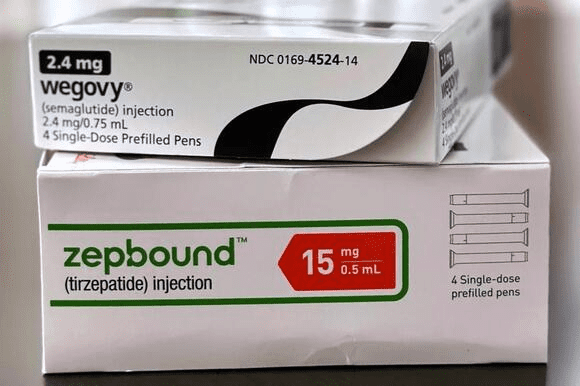
Still, the broader reaction to Trump’s initiative has been overwhelmingly positive — even among health professionals who don’t always agree with his policies. Dr. Andrea Willis, a leading endocrinologist at the Cleveland Clinic, told reporters, “This move will make an enormous difference in patient outcomes. We’ve known these drugs work, but affordability has always been the obstacle. If this policy holds, it’s a genuine game changer.”
That kind of endorsement has become increasingly rare in modern politics. Yet Trump’s announcement seems to have struck a chord across ideological lines. On social media, supporters celebrated it as another sign that Trump was keeping his word on issues that affect ordinary Americans. “Only Trump could get Big Pharma to bend,” one commentator wrote on X. “He’s fighting for everyday people while others just talk.”
For Fetterman, who has often clashed with the Trump administration on policy, the reaction was pragmatic rather than partisan. “Making these critical drugs more affordable will save lives,” he said bluntly, in remarks that surprised even his own colleagues. The senator’s openness about his health struggles has made him a relatable figure to millions who share similar challenges, and his acknowledgment of Trump’s move carried weight beyond politics.
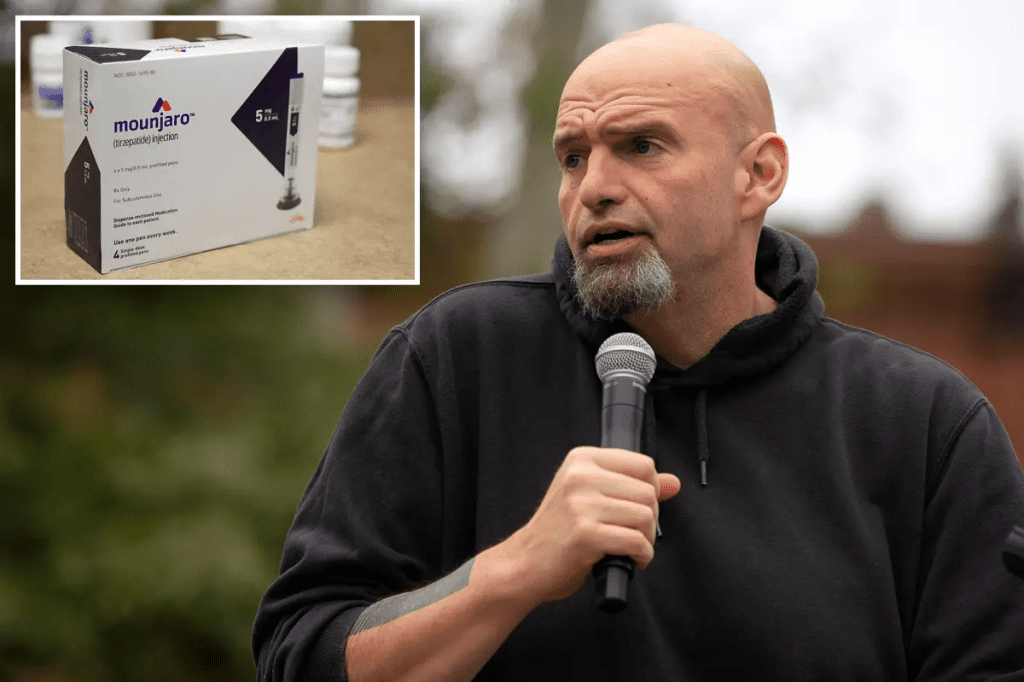
The economics of the deal also reveal how strategic it was. The agreement includes manufacturing incentives to ensure domestic production of GLP-1 drugs, a critical issue after years of global shortages. Trump’s directive pushes both Eli Lilly and Novo Nordisk to expand their U.S. operations, reducing dependency on overseas suppliers. Industry insiders believe that could also drive down costs for private insurers and uninsured patients as production scales.
Critics, however, have raised concerns about how the price reduction will affect innovation in the pharmaceutical sector. Some analysts warn that government pressure on drug pricing might discourage future research investment. But Trump officials have countered that argument by pointing to the companies’ record profits — both Eli Lilly and Novo Nordisk reported double-digit revenue growth in 2024. “These firms can afford to be part of the solution,” a senior official said. “The American taxpayer shouldn’t be footing the bill for inflated markups.”
Perhaps what makes this moment stand out most is its tone. In an era defined by polarization, this announcement felt almost refreshingly bipartisan. Democrats acknowledged the tangible benefits to their constituents, while Republicans framed it as proof that Trump’s America First economic strategy continues to deliver. Analysts suggest the move could reshape the healthcare debate heading into the 2026 midterms — giving Republicans a major policy victory to tout, and Democrats a challenge to match.
Beyond politics, the human impact is undeniable. For patients struggling to afford life-changing medication, the relief is immediate and personal. “This is the first time I feel like someone in Washington actually heard us,” said one patient from Ohio who has been rationing her medication for months due to cost. Her story mirrors millions across the country — people forced to choose between medical treatment and basic living expenses.
As the new pricing model takes effect in early 2026, federal agencies are preparing for a surge in applications from healthcare providers and patients. Pharmacies are already seeing increased inquiries, and both Eli Lilly and Novo Nordisk have announced plans to triple production capacity to meet demand. Economists say this could also spark job growth in the pharmaceutical manufacturing sector — another boost for Trump’s economic record.
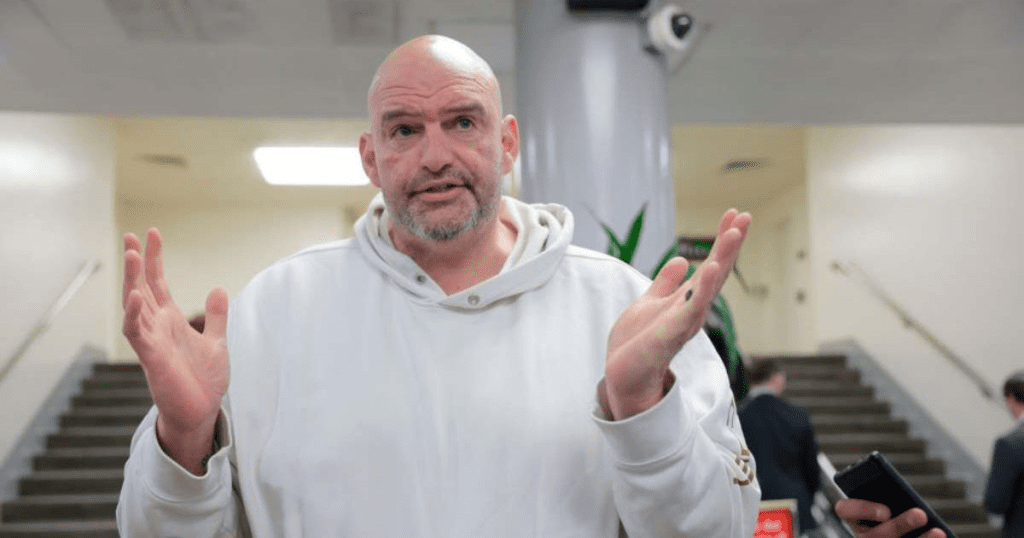
For now, the rare moment of political harmony underscores a simple truth: when leadership delivers tangible results, even the loudest divisions can quiet down. Trump’s decision to tackle Big Pharma head-on has not only reignited his base but also drawn respect from unexpected corners of the political aisle. Fetterman’s acknowledgment — though brief — symbolized a rare alignment between two vastly different political worlds, bound by a shared understanding that healthcare reform, at its best, should transcend ideology.
The announcement comes at a pivotal time for Trump’s administration, as debates around healthcare, inflation, and cost of living dominate the national conversation. It’s a reminder that leadership isn’t just about rhetoric — it’s about measurable impact. And in this case, the impact could literally save lives.
As Senator Fetterman put it simply: “Making these critical drugs more affordable will save lives.” It’s a statement few could disagree with — and one that may define a landmark moment in Trump’s ongoing effort to reshape America’s healthcare system from the ground up.
